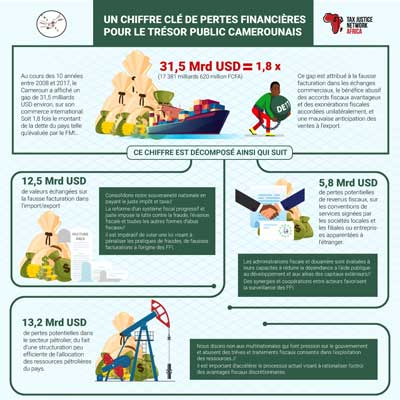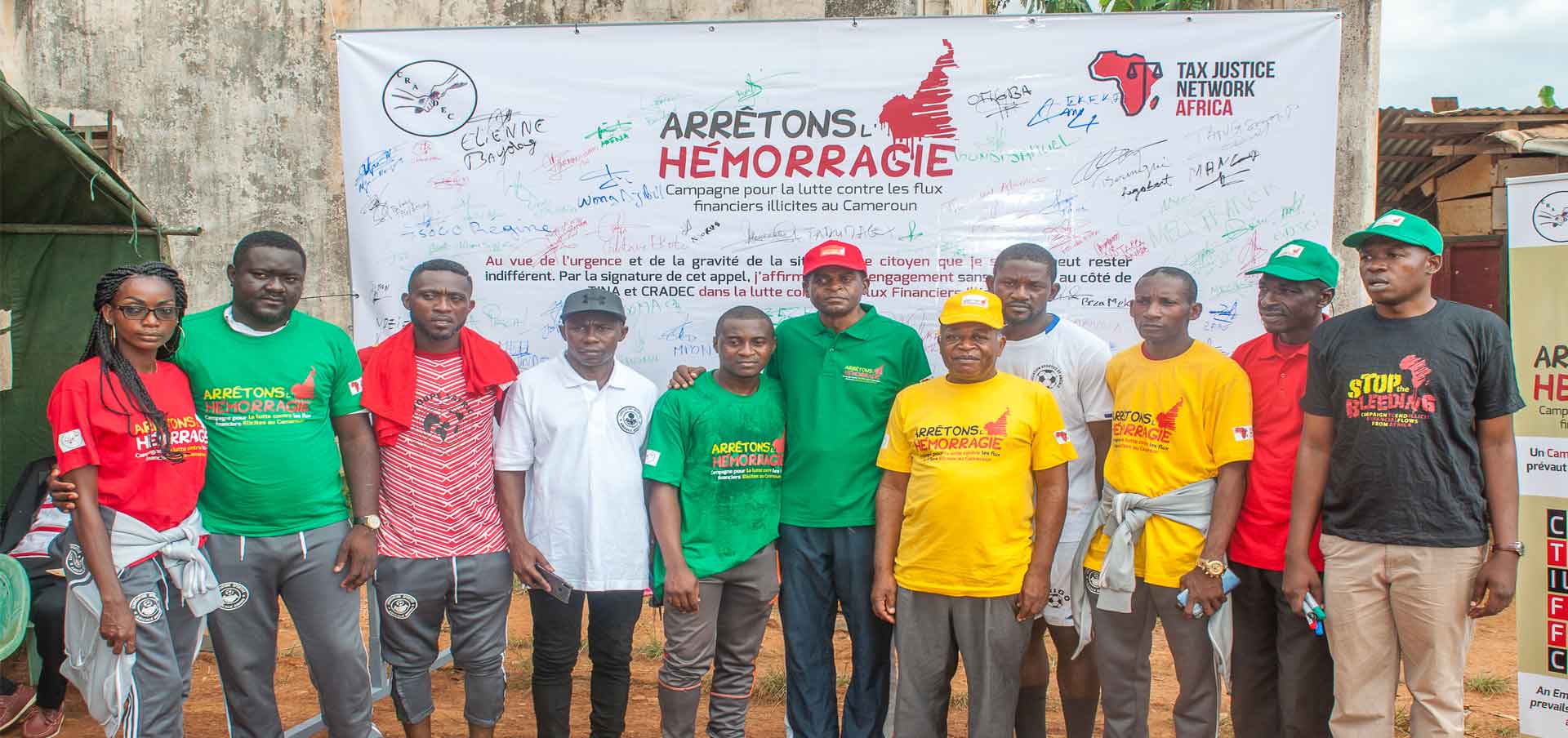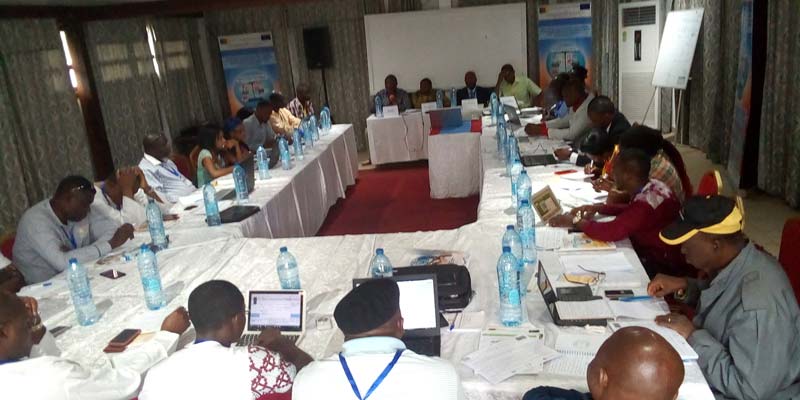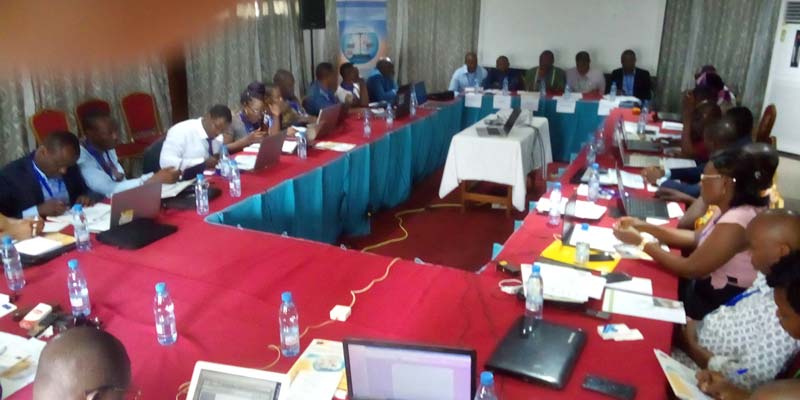
According to a report on Illicit Financial Flows which was published by the African Union and the United Nations Economic Commission for Africa indicating that the African continent loses on average 50 billion USD per year in terms of Illicit Financial Flows, the Consortium composed of ADIN, Afroleadership, CRADEC, DMJ and TI-C, has developed a study on illicit financial flows in international trade in Cameroon as part of the project "Strengthening budgetary governance for the provision of sustainable basic services in respect for the preservation of the environment ”, project funded by the Delegation of the European Union within the framework of Cameroon-European Union cooperation.
On September 30, 2020 in Yaounde, the results obtained from the said study were presented to the public to understand what opportunities the State is losing through the IFFs.
Based on the gaps due to false invoicing in trade, the abusive benefit of advantageous tax agreements and tax exemptions granted unilaterally, and poor anticipation of export sales, Cameroon has a gap of 31.5 billion Approximately USD, on its international trade, over the 10 years between 2008 and 2017; that is 17,381 billion 620 million FCFA. This represents 1.8 times the amount of the Cameroonian debt as assessed by the IMF (International Monetary Fund) on the occasion of one of its recent analyzes on Cameroon and 2.3 times if we stick to it alone as a mirror evaluation.

In this report, the notion of IFF extends to certain flows that comply with the law, but which unfairly deprive Cameroon of the resources necessary for its economic development. This is particularly the case in the oil sector. The report also points to the “associative expenses” of the National Hydrocarbons Company (SNH). They are provided for by the petroleum law and presented as Cameroon’s contribution to oil exploration and exploitation expenses. But the way they are administered lacks transparency and visibility; which according to the authors of the study, grounds the suspicion of wrongfulness. Especially since the government also grants tax exemptions intended to encourage exploration and investment in the oil and gas sector.
In 2017 alone, this tax expenditure amounted to CFAF 196.8 billion. While SNH's commitments stood at FCFA 177.8 billion, or 141.3 billion in association expenses and 36.5 billion in other commitments.
In addition to the gap in values traded on import / export ($ 12.5 billion) and potential losses in the oil sector ($ 13.2 billion in total), the report adds potential losses of $ 5.8 billion tax revenues on service agreements signed by local companies and subsidiaries or related companies abroad. Hence the estimate of unfair losses of $ 31.5 billion for Cameroon.
In a context marked by multifaceted crises, estimates of IFF losses call on the public authorities to materialize the political commitment of the special declaration of the Assembly of Heads of State and African Governments for the fight against Illicit Financial Flows , of January 2015, in Addis Ababa on the one hand and on the other hand at the dawn of the presentation of the interim report of the FACTI Panel (Financial Accountability, Transparency International), on September 24, 2020, which identifies the main gaps in the implementation and systemic of existing international frameworks for tax cooperation, the fight against corruption and money laundering.
In light of the impact of the COVID-19 crisis on progress towards the implementation of the 2030 Agenda for Sustainable Development, the government should include reducing resource losses on the list of priority objectives of public finance reform through the definition of a national strategy to fight Illicit Financial Flows.









